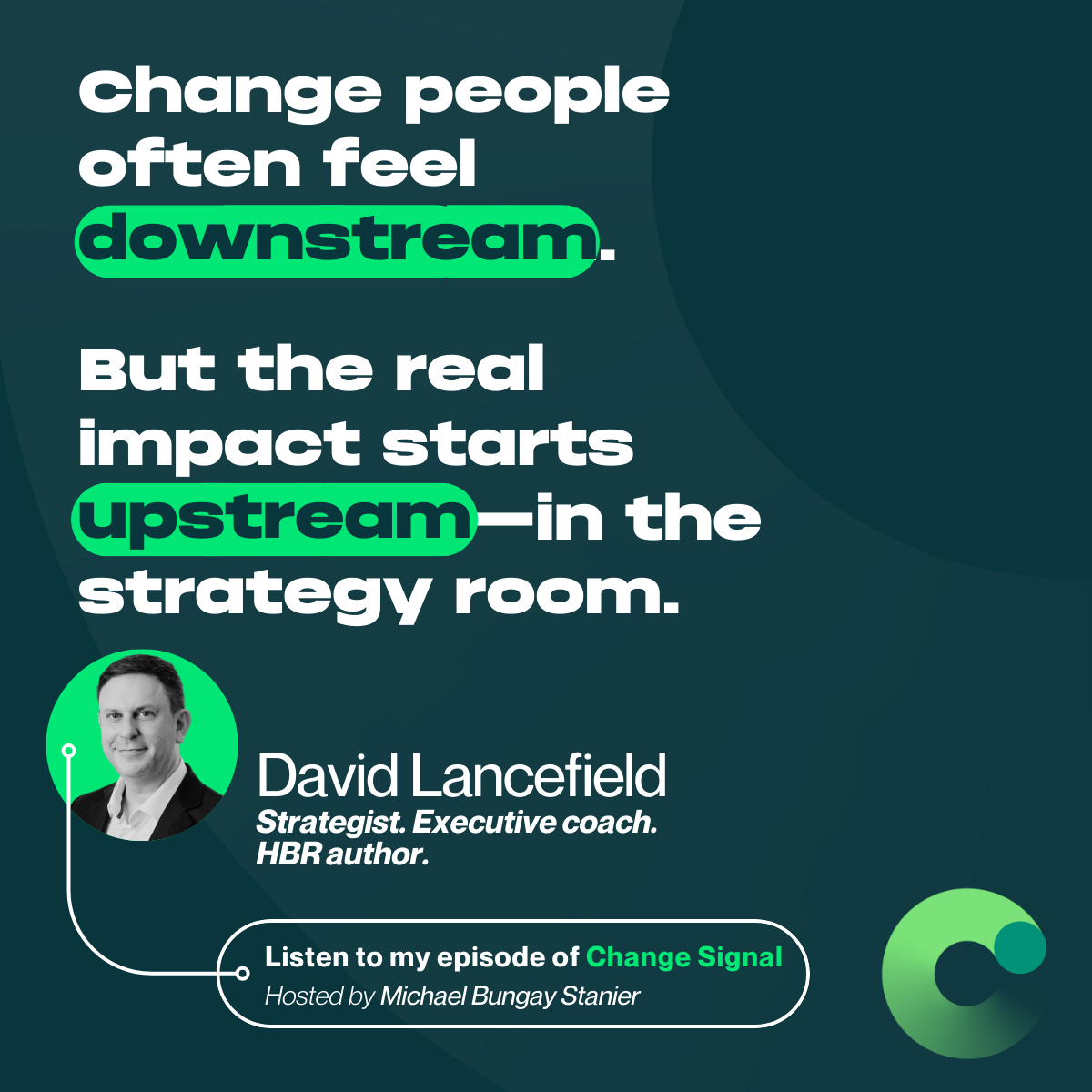How to handle yourself after a big win
Especially when the next one isn't obvious
Welcome to Every Day is a Strategy Day, where we break down strategy into something usable, memorable, and a little provocative.
This edition delves into how to handle yourself after a big win - advice I wish I had taken years ago!
Think.
I remember it like it was yesterday. It was one of the worst moments in my career, just after the best. I’d just wrapped a landmark project: High impact. Complex. Fulfilling. Full of learning, and lots of fun. The kind of work you hope comes your way.
For a few days, I floated on cloud nine. Buzzing. Feeling proud of my team and my own contribution.
Then it hit me. Silence.
No calls. No invite to shape the next thing.
No meetings to attend. Nobody waiting for my decision.
It didn’t feel like failure. It felt like falling from a great height. It hurt and I wasn’t prepared.
If you’ve ever led something transformational - a turnaround, a launch, a growth surge - and felt victorious, alive, amazing, only to be met with a void, you’ll know what I mean.
Here’s what I wish I’d known earlier:
Success isn’t the end. It’s a transition.
It marks the beginning of a new season, often not one of growth, but of recovery, renewal, and repositioning.
Sometimes it takes weeks or months to find your next challenge, even years.
I’ve known some leaders who have never quite reach the same highs again. They realise, only later, that they already had their defining moment.
High achievers like us are wired for motion. We chase the next summit. But organisations don’t respond to your brilliance on autopilot.
You have to earn the next role, assignment, project. Shape it. Ask for it. That’s the harder part. Especially when you’re tired.
And here’s what we rarely admit:
You may need rest. Even if your ego resists it. Big wins can take more from you than they give. Renewal isn’t indulgence — it’s a strategic necessity.
This is the paradox of high performance:
You’ve proven your capability and now you need to recover.
You want to leap again but first, you must reposition.
You’re hungry for the next act but you haven’t figured it out yet.
So what do you do (and what I should have done):
Acknowledge the season you’re in honestly.
Engage your stakeholders even if you’re running low on energy.
Give yourself space to breathe, reflect, refresh.
Begin designing your next move rather than waiting for it.
Here’s a line from the book proposal I’ve just finished (ready to discuss with agents):
“Strategy follows the season. Growth, transition, and recovery each call for different rhythms. Honour the season you’re in, and lead from there.”
Let that guide you.
Listen.
On my podcast Lancefield on the Line, I spoke with Melody Wilding, author of Managing Up. She said something that stopped me in my tracks:
“Your boss is not your career architect.”
She’s right. I used to believe they should be. That if I delivered something exceptional, they’d plot my next step. They won’t. That’s on you.
So how do you keep momentum after a big win? Melody suggests three conversations:
1. The Alignment Conversation
Ask: “If we fast-forward to the end of this quarter, what does success look like for you?”. This recentres your manager’s priorities and shows where you can help shape outcomes.
2. The Visibility Conversation
Try: “We nailed the project — best financial results in years. I led the commercial negotiations.” Share your impact with clarity and confidence without arrogance.
3. The Ownership Conversation
Say: “Here’s a proposal for what I could lead next — and how it maps to our strategy. Can I walk you through it?” Don’t wait for permission, create interest in you.
They’re strategic signals. They build the bridge between your last success and your next opportunity.
Visualise.
Your career involves a set of seasons. Right now, you might be in:
Spring - Ramping up.
Summer - Performing.
Autumn - Delivering.
Winter - Reflecting and renewing
After a big win, you’re often in Winter, even if your ambition is screaming for another Summer.
So prepare yourself for it (even when you’re in the thick of it) and visualise who you want to be:
Kind to yourself as you recover.
Curious about future opportunities.
Ready to welcome new ideas, feedback, and advice.
Grateful for the experience you’ve just had.
Read.
Here’s a couple of articles that dig deeper into the topic:
Post-Achievement Depression: Overcoming the Slump
A psychological take on what happens after we achieve something important.From Hero to Zero: Overcoming the Post-Olympic Blues
Yes, even elite athletes struggle after winning at the heighest level.
Challenge yourself.
If you’re not feeling your best after a win, or are deep in deliverym, try these:
What season am I really in? What would respecting it look like?
What signal have I sent (or not sent) about what I want next?
What conversations am I avoiding, hoping the work will speak for itself?
What small bet could I place to shape the next act?
What if rest is the most strategic thing I can offer myself right now?
Strategy Shift.
If you’re navigating a post-success plateau, or anticipating one, this is where I do some of my best work with senior leaders:
Take the Strategic Leader online course.
Download the High-Stakes Meeting Toolkit.
Read my latest HBR & Strategy+Business articles.
I was also a recent guest on Michael Bungay Stanier’s Change Signal podcast, where we discussed why change often fails when it’s not framed around a clear strategy. You can listen here.
What’s the best move you’ve made after a big success? Do let me know.
Warmly,
David.
***
That’s all for this edition. Thanks for your interest, encouragement, and inspiration.
Subscribe for free to receive new posts and support my work:




